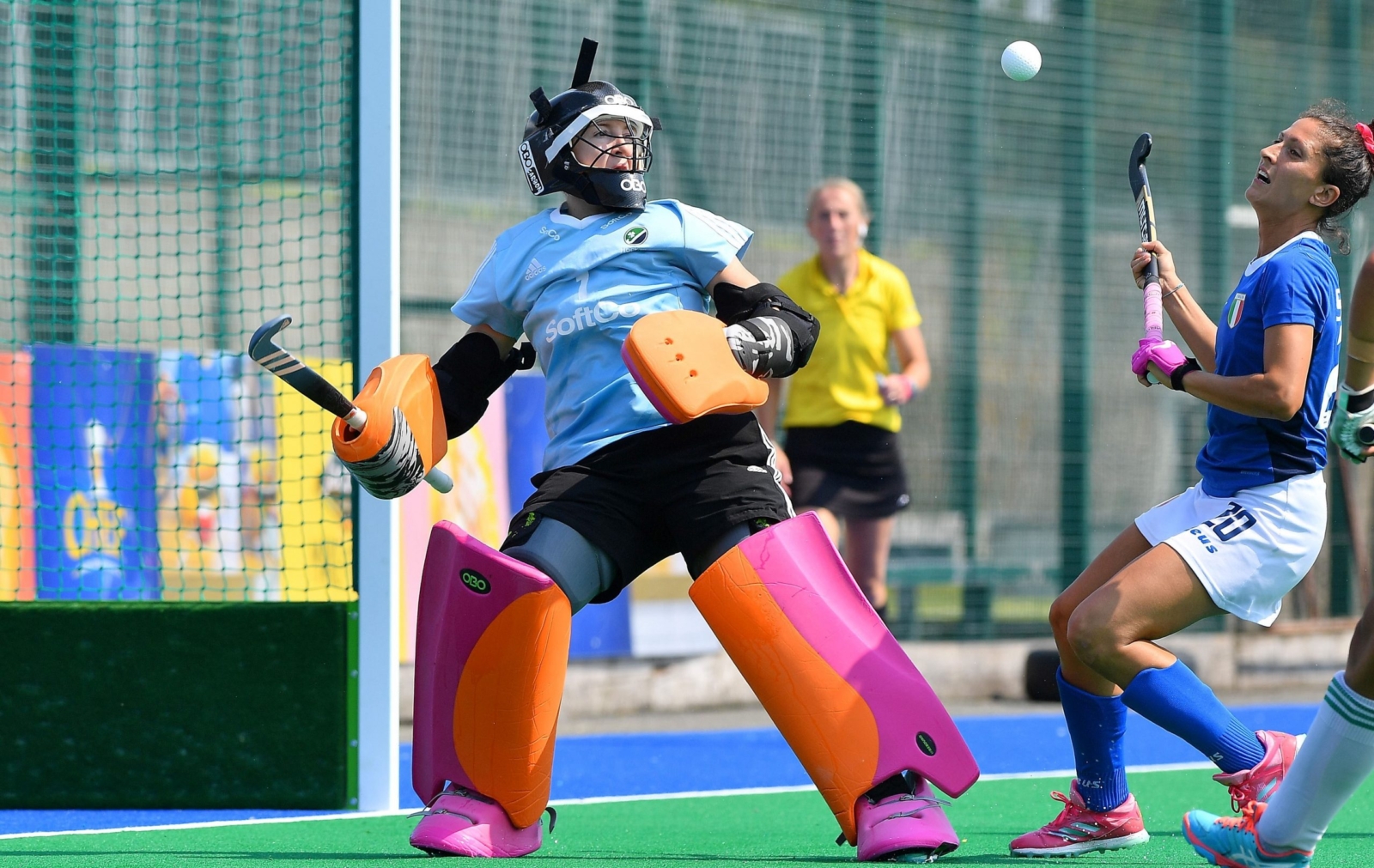“How do you manage to fit in all the practice and still be a doctor as well?” Daniel, aged 9, to Irish goalkeeper Grace O’Flanagan.
The hand-written letter landed in her mailbox at the end of a 14-hour shift before heading into a weekend of training with the Green Army.
The letter landed in February 2020 as she was working her way back into Olympic contention having taken a year out in the wake of the 2018 World Cup silver medal run.
As second choice goalkeeper behind Ayeisha McFerran, O’Flanagan’s role was an understated but absolutely crucial one. But it was perhaps her intervention a year before which was the most vital save of all, denying Rani Rampal from the penalty flick spot with her first touch of the qualifiers.
McFerran had been sent to the sin-bin and India were one up; lose and Ireland were likely set to sit out another major tournament. She guess right, Ireland fought back and the bandwagon’s wheels started to roll.
In the wake of London’s heroics, though, O’Flanagan had to take a year out to focus on her job as a surgical trainee, soon to be a specialist registrar, before thinking about whether or not to battle for a place in the Tokyo squad.
“Safe to say, [that letter] brought a smile to my face!” Indeed, it’s a question the Railway Union shot-stopper has been trying to work out for the guts of a decade, marrying an intense career on and off the pitch.
“I love to try and balance it all but the reality is I had jobs where the hours were too much, I wouldn’t make training sessions. It was looking after my mental health, there’s only so much you can do, so I took the decision after the World Cup to take a break because I had been doing so much.”
When the pandemic hit and Tokyo 2020 postponed, it meant all hands on deck and she spent six months working frontline in COVID hospitals.
Gradually, though, international hockey came back into view in the autumn and now, with the vaccine roll-out in place, O’Flanagan has been able to take the decision to take work-leave and solely play hockey for the coming months with June’s European Championships and the reset Tokyo dates a month later.
“My availability for work would have been too little really. I didn’t want to leave my colleagues stretched or short-staffed so the easier thing was that I would focus on training especially considering the quarantine issue every time we travel.
“It would have been just too much time out of work had I been in and out. I’m definitely glad I’ve made that decision, this is a once in a lifetime opportunity.
“I think I would always have looked back and wondered ‘what if’ if I hadn’t given it everything I have, so that was my thinking going in to this. I’m enjoying every minute of it, but I’m looking forward to getting back to work. But this is an opportunity I had to go for.”
As such, it puts her in line for another loop on the rollercoaster of emotions. Eighteen months before the World Cup, she was diagnosed with cancer in her neck.
Her medical intuition suggested it was more than tight muscles after a tough training block. It allowed her to a catch an aggressive type of soft tissue sarcoma — an epithelioid variant of myxofibrosarcoma to be exact — early enough.
“I knew the kind of cancer they suspected and knew it had a poor outlook,” she said of that moment. “All of a sudden, I went from being a healthy 26-year-old to maybe not being alive in five years’ time. That was daunting!”
It is why she has an empathy with the powerful Darkness Into Light message and the ability to come back from your lowest moments, a central reason why she is delighted to be among the Pieta House fundraiser’s ambassadors.
“When I was asked, it was something I absolutely jumped at it,” she said. “My experience as a doctor and an athlete gives me a unique insight into the importance of mental health.
“It is definitely part of everyday life for me in work and in my sport. As athletes, we have to pay really close attention to our physical but also our mental well-being, looking at how our mood is every day, our sleep, all those things make a difference to our performance.”
At work, meanwhile, she spent the first six months of the pandemic working in COVID hospitals where she saw all kinds of strain among her patients and colleagues.
“I see a lot of patients with mental health issues coming into hospitals in crisis. The reality is most of us know someone who struggles from mental health issues, most know someone affected by suicide.
“That’s the importance of Darkness into Light and Pieta, helping them. The idea of 200,000 people coming together at one time for sunrise to show support, to show we are standing up for mental health issues, to show we are fighting against suicide is a really important message.
“It has been a difficult year for healthcare workers, for the health service, for our patients and the general public. Thankfully, we are seeing the light at the end of the tunnel with the vaccines rolling out, numbers going down, things opening up. That’s really positive and we are seeing the relief in hospitals.”
Four out of ten people who access Pieta’s services cite loneliness as a trigger for seeking suicide prevention counselling, making it more important than ever to unite for ‘One Sunrise Together’ this weekend
Join Pieta, Electric Ireland and the thousands of people already signed up for Darkness Into Light this Saturday, May 8th by signing up now at www.darknessintolight.ie
